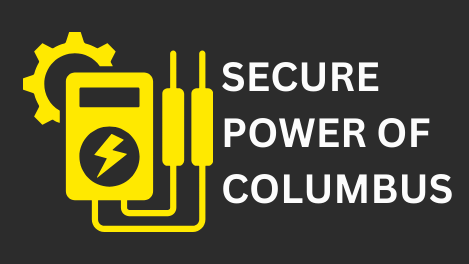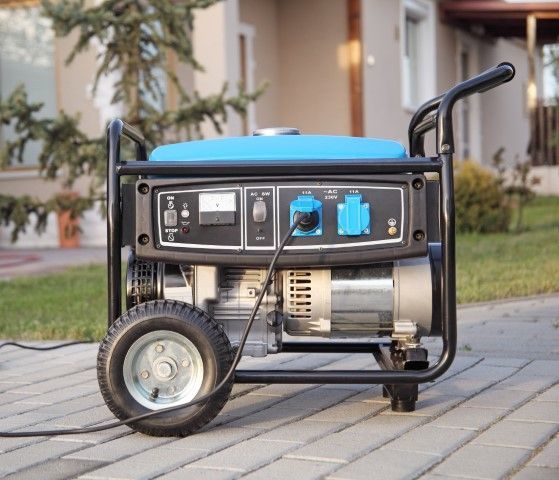
Electric Generators in Columbus OH
Electric generators are essential devices that convert mechanical energy into electrical energy, providing power when the regular electrical supply is unavailable. In Columbus, OH, having a reliable generator can be crucial for both residential and commercial properties. An electric generator is a machine that transforms mechanical energy into electrical energy through electromagnetic induction. It works by rotating a coil of wire in a magnetic field, which induces an electrical current in the wire. This current can then be used to power various electrical devices and systems.
Different Types and Key Components
Generators come in various types, each designed to meet specific needs. Common types include portable generators, standby generators, and inverter generators.
- Portable Generators: These are versatile and can be used in various settings. They are ideal for outdoor activities, construction sites, and as backup power during emergencies.
- Standby Generators: Installed permanently and automatically start up during power outages. They are often used in homes and businesses to ensure an uninterrupted power supply.
- Inverter Generators: Known for their efficiency and quiet operation. They are suitable for sensitive electronic devices and are often used in recreational settings.
Key components of an electric generator include the engine, alternator, fuel system, and control panel. The engine provides the mechanical energy needed for operation, while the alternator converts this energy into electrical power. The fuel system supplies the engine with fuel, and the control panel allows users to manage and monitor the generator's performance.

We will get back to you as soon as possible.
Please try again later.
Basic Principles of Electromagnetic Induction
Electromagnetic induction is the core principle behind electric generators. It involves the creation of an electric current through the movement of a conductor in a magnetic field. When a conductor, such as a wire coil, rotates within a magnetic field, it cuts through magnetic lines of force. This movement induces a flow of electrical current in the wire, which is harnessed to produce electricity.
Key Features and Specifications
When selecting a generator, it's essential to consider its features and specifications to ensure it meets your needs. Key features include the power output, which determines how many devices the generator can support, and the fuel type, which can be gasoline, diesel, or propane. Other important specifications include the generator's run time on a full tank, its noise level, and whether it has any additional features such as automatic start functions or digital monitoring.
Installation and Usage Tips
Proper installation and usage are crucial for the effective operation of an electric generator. For permanent installations, such as standby generators, it's important to follow local codes and regulations. This typically involves placing the generator on a stable, level surface and ensuring adequate ventilation to prevent overheating. For portable generators, ensure they are operated in well-ventilated areas away from enclosed spaces to avoid carbon monoxide buildup. Regularly check the fuel levels, oil, and air filters to maintain optimal performance.
Maintenance and Safety
Routine maintenance is key to keeping your generator in good working condition. This includes regular oil changes, air filter replacements, and checking the fuel system for leaks. It's also important to test the generator periodically to ensure it will function correctly during an emergency. Safety measures include keeping the generator dry, avoiding overloading it with too many devices, and ensuring it is properly grounded.
Environmental Considerations
Generators can impact the environment, particularly in terms of noise and emissions. To minimize these effects, choose a generator with low emissions and noise levels. Additionally, consider using environmentally friendly fuels and maintaining your generator to reduce its impact. Proper disposal of old fuel and oil is also crucial for minimizing environmental harm.
If you're looking for a reliable
electric generator in Columbus, OH, our team is here to help. Whether you need advice on selecting the right generator or require installation and maintenance services, we offer comprehensive support to meet your needs. Contact us today to find out how we can assist you in securing a dependable power solution for your home or business.
Why Electric Generators Matter and How They're Commonly Used
Electric generators are crucial devices that convert mechanical energy into electrical energy, ensuring a continuous power supply for various applications. In today’s world, where electricity is fundamental to almost every aspect of life, understanding the importance and uses of generators can help us appreciate their role in maintaining our modern way of living. Whether in homes, businesses, or industrial settings, generators provide reliable backup power when the main supply fails and support essential operations in a range of scenarios. Electric generators play a pivotal role in ensuring a stable power supply. Their importance extends beyond mere convenience, impacting safety, productivity, and overall quality of life. Here are some of the key applications where electric generators are indispensable:

Residential Use
For homeowners, electric generators offer a vital backup solution during power outages caused by storms, technical faults, or other disruptions. They can keep essential appliances running, such as refrigerators, heaters, and medical equipment, ensuring that daily life can continue smoothly even when the main power grid is down.
Commercial Settings
Businesses rely heavily on a consistent power supply to operate efficiently. Electric generators are essential in commercial environments to prevent downtime and maintain operations during power interruptions. They support critical systems, including computers, lighting, and climate control, helping to avoid financial losses and maintain service quality.
Industrial Applications
In industrial settings, generators are crucial for operations that require continuous power. They are used to power machinery, lighting, and ventilation systems, particularly in remote locations where access to the main power grid may be limited. Generators also play a key role in maintaining productivity during unexpected power failures.
Healthcare Facilities
Hospitals and medical centers must have a reliable power source to ensure patient safety and the operation of life-saving equipment. Generators provide a backup power supply to critical systems such as ventilators, monitoring equipment, and lighting, which are essential for patient care and emergency response.
Events and Construction Sites
Temporary power solutions are often needed for events and construction sites. Generators supply electricity for lighting, sound systems, and tools, enabling these activities to proceed regardless of the availability of permanent power sources. This flexibility supports the successful execution of events and construction projects.
Emergency Services
Emergency response units, such as fire departments and rescue teams, use generators to ensure that their equipment and communication systems remain operational during power outages. This capability is crucial for effective response and coordination in disaster situations.
Electric generators are an integral part of modern life, offering a reliable source of power in a variety of scenarios. If you have questions about choosing the right generator for your needs or require assistance with installation and maintenance, our team is here to help. Contact us today to discuss your requirements and ensure that you have the reliable power solution you need.
Key Considerations When Choosing an Electric Generator
Choosing the right electric generator is a critical decision for ensuring that you have a reliable source of power, whether it's for your home, business, or during outdoor activities. Generators come in various sizes and types, each with its own set of features and benefits. Understanding what to look for can help you make an informed choice that meets your specific needs. This guide will walk you through the key considerations to keep in mind when selecting an electric generator.
Power Output
The most important factor to consider is the generator’s power output, measured in watts. Determine the total wattage needed by calculating the combined wattage of all the appliances and devices you want to power. This includes essential items like refrigerators, lights, and heating or cooling systems. Generators are available in a range of capacities, so choose one that can handle your power needs without overloading.
Type of Generator
Generators come in different types, including portable, standby, and inverter generators. Portable generators are versatile and can be moved easily, making them ideal for temporary use or emergency situations. Standby generators are fixed units that automatically provide power during an outage, offering convenience and reliability for permanent installations. Inverter generators are known for their fuel efficiency and quiet operation, making them suitable for sensitive electronics and quieter environments.
Runtime and Fuel Efficiency
Consider how long the generator can run on a full tank of fuel. A longer runtime reduces the need for frequent refueling, which is particularly important during extended power outages. Fuel efficiency is also crucial as it affects the overall cost of operating the generator. Look for models with good fuel consumption rates and larger fuel tanks for longer operation times.
Fuel Source
Generators run on various fuels, such as gasoline, diesel, propane, and natural gas. Each fuel type has its pros and cons. Gasoline is widely available but may require more frequent refueling. Diesel generators are durable and efficient but can be louder. Propane and natural gas generators are clean-burning and can be more environmentally friendly, but they may require a connection to a gas supply or additional storage.
Portability and Size
The size and weight of the generator are essential if you need a portable unit. Smaller, lightweight generators are easier to transport but may offer less power. Larger generators provide more power but can be cumbersome. Consider how often you’ll need to move the generator and choose a size that balances portability with your power needs.
Noise Level
Noise level is an important consideration, especially if you plan to use the generator in residential areas or during outdoor events. Generators produce varying levels of noise, typically measured in decibels (dB). Inverter generators are often quieter, making them suitable for noise-sensitive environments. Check the noise rating of the generator and consider models designed to operate with reduced noise.
Ease of Use and Maintenance
Choose a generator that is easy to operate and maintain. Look for user-friendly features like electric start systems and intuitive controls. Regular maintenance is necessary to keep the generator in good working condition, so consider models that offer easy access to maintenance points and have good support from the manufacturer.
Safety Features
Safety should always be a priority when choosing a generator. Look for features such as automatic shutdowns in case of low oil or overload, circuit breakers, and carbon monoxide detectors. These features help protect both the generator and its users from potential hazards.
Choosing the right electric generator involves evaluating several factors to ensure you get the best performance and reliability for your needs. If you need assistance in selecting the perfect generator or have any questions about our offerings, please don’t hesitate to reach out. Our team of experts is here to help you find the ideal solution for your power needs. Contact us today to learn more about our products and services, and let us assist you in making an informed decision.
Let's Connect!
We offer top-notch whole house generator solutions. Our team is dedicated to ensuring your home stays powered during outages. Learn about How Whole House Generators Work in our Buyer's Guide. Don't let unexpected power outages disrupt your life. Contact us today for reliable backup power solutions and embrace a worry-free lifestyle.